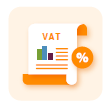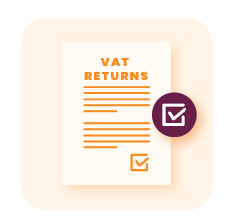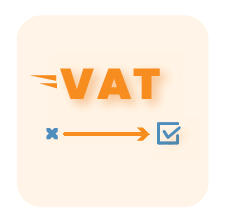VAT in Hungary
In 1988, Hungary introduced the Value Added Tax (VAT), locally referred to as Általános forgalmi adó (ÁFA). The primary legal framework governing VAT in Hungary is outlined in the Hungarian Act CXXVII of 2007 on Value Added Tax (Általános forgalmi adóról), as subsequently amended (referred to as the “VAT Act”). This Act aligns with the European Union’s (EU) VAT Directive, which, due to EU law’s supremacy, can supersede Hungarian VAT regulations.
Everything you need to know about VAT registration, returns, Tax Representation (if applicable), and your legal duties in Hungary is conveniently located right here!
Selling in Hungary?
Scope of Taxation
Value Added Tax (VAT) can be applied in two ways: either the supplier is responsible for collecting and remitting the tax to the government, or in certain cases, the recipient of the goods or services is responsible for paying the tax directly to the government under what is known as the reverse charge mechanism.
The following transactions are subject to VAT:
- When a taxable person supplies goods or services for a fee within the borders of Hungary.
- When goods are acquired from another European Union (EU) member state for a fee.
- When goods are imported into Hungary from a non-EU country.
Article 2 of the Hungarian VAT Act defines taxable transactions as including all types of supplies, such as the sale and provision of goods or services for a fee within Hungary, as well as intra-Community acquisitions and imports. Additionally, barter transactions are also subject to VAT and are treated as two separate taxable transactions, each assessed separately for the tax.
The supply of goods and services is treated equally under the Act, regardless of the way they are supplied:
- Whether it is under a contract
- Legal regulation.
- Court decision or decree of an authority
- Through an auction.
Download the Hungarian VAT Guide
Hungary – General VAT information
| Tax authority | Hungarian National Legislation |
| VAT in local language | Általános forgalmi adó (ÁFA) |
| Currency | Ft HUF |
| VAT number format | HU + 8 characters |
| HU12345678 | |
| VAT rates
|
Standard 27%; Reduced 18%, 5% |
| Zero-rated (0%) and exempt | |
| Thresholds | |
| Registration | |
| Established | None |
| Non-established | None |
| Intra-EU Distance sales and electronically supplied services to consumers (OSS) | HUF 10,000 |
| VAT Group | Allowed – but optional |
| Voluntary Registration | Available- only if the company must either have already made taxable supplies and paid VAT in Hungary |
| Intra-EU Dispatches | HUF 14 Billion |
| Intra-EU Arrivals | HUF 5 Billion |
| Recovery of VAT by non-established businesses | Yes |
| Compliance Returns and Deadlines | |
| VAT Returns | Monthly – 20th of the following month Quarterly – 20th of the following quarter Annually – 25th February of the following tax year |
| Frequency | Monthly, quarterly, and annually |
| European Sales Listing | 20th day of the month after the end of the reporting period (month/quarter) to which it relates. |
| Intrastat | 15th of the following month |
| Electronic Invoicing | Electronic invoices are generally optional and subject to acceptance by the recipient. However, all invoices must be reported electronically through Real-time Reporting. |
Last Updated: 04/04/2024
Disclaimer
The information provided by Global VAT Compliance B.V. on this webpage is intended for general informational purposes only. Global VAT Compliance B.V. is not responsible for the accuracy of the information on these pages, and cannot be held liable for claims or losses deriving from the use of this information. If you wish to receive VAT related information please contact our experts at support@gvc.tax








